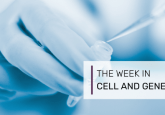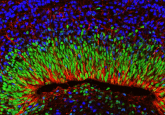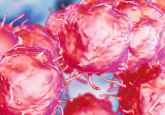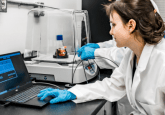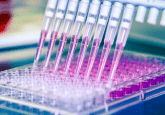Optimizing cell culture for advanced therapies with complex algorithms

Complex algorithms are being developed to predict optimal cell culture conditions for regenerative medicine applications.
Cell therapy treatments involve transplanting engineered human cells into patients to replace or repair damaged cells and tissues. Before these cells can be transplanted into a patient, they must be cultured, manipulated and expanded in a laboratory to enhance their therapeutic properties and ensure there is a large enough population to have the desired effect.
Julie Audet (Institute of Biomedical Engineering, University of Toronto, Canada) and her team have been developing complex computational algorithms that can optimize laboratory experiments to enable researchers to define the best possible conditions to culture their cells in.
The algorithms can assist researchers in designing experiments that are feasible and have a higher chance of success, taking away some of the trial and error associated with culture optimization, and reducing the time and resources required.
“Our algorithms become necessary when experiments are very costly to execute and are extremely labour-intensive,” said Audet when discussing the application of these algorithms. “They are especially useful when the results are impossible to predict because of the complexity of the biological systems under study. In that case, it would not be feasible or possible for researchers to use conventional approaches to design and execute their experiments.”
The algorithms have already had success in several applications. Craig Simmons, a professor in the Institute of Biomedical Engineering and the Department of Mechanical and Industrial Engineering in the Faculty of Applied Science & Engineering at the University of Toronto, and Neal Callaghan, a PhD graduate and former researcher in Professor Simmons’ lab, applied the algorithms to develop culture media for cardiac muscles cells.
Audet is also collaborating with another University of Toronto colleague, Sowmya Viswanathan, on research that focuses on how the characteristics of cell donors can cause cells to behave differently in culture. Viswanathan is developing cellular therapies centered around mesenchymal stromal cells, targeting the chronic inflammatory condition of osteoarthritis.
Viswanathan explained, “We have seen that different mesenchymal stromal cell donors prefer different growth conditions … This algorithm helps us identify optimal conditions for different donors without doing a full set of detailed experiments.”
Audet and Viswanathan co-supervise Oreoluwa Kolade, a PhD candidate at the Biomedical Engineering and a fellow at the Data Sciences Institute at the University of Toronto. Kolade explained, “My research involves the statistical design of experiments, looking at the numerous factors that can impact the cell expansion process, such as oxygen levels, cell density and medium composition.”
It is hoped that, with this, researchers could run multiple simulations of differing conditions to select which set of conditions will result in the best cells.
“We are currently working on the commercialization of the latest version of one of the algorithms that includes these machine-learning modules to help design experiments,” said Audet. “We hope this tool will help make cellular therapies both widely available and more accessible by accelerating the development of these therapies while increasing the effectiveness of the enhanced cells.”
